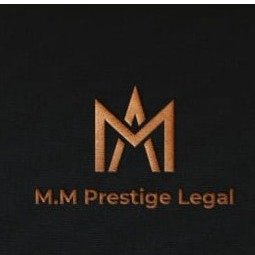Best International Trade Law Lawyers in Pretoria
Share your needs with us, get contacted by law firms.
Free. Takes 2 min.
List of the best lawyers in Pretoria, South Africa
South Africa International Trade Law Legal Articles
Browse our 2 legal articles about International Trade Law in South Africa written by expert lawyers.
- Managing Import Tariffs and Customs Disputes in South Africa
- Key Takeaways Managing import tariffs and resolving customs disputes in South Africa requires strict adherence to timelines and precise commodity classification. Navigating the South African Revenue Service (SARS) framework effectively protects businesses from costly delays and penalties. You have exactly 30 days to file a Notice of Objection against a... Read more →
- Repatriating Profits: South Africa Foreign Investment Laws
- Repatriating Profits: Foreign Investment Laws in South Africa South Africa offers a sophisticated legal framework for international investors, but the movement of capital across its borders is strictly governed by the South African Reserve Bank (SARB). Navigating these regulations is essential for any foreign-owned entity looking to return profits to... Read more →
About International Trade Law in Pretoria, South Africa
International Trade Law in Pretoria, as in the rest of South Africa, is a vital area of law that facilitates and regulates trade across national borders. This field encompasses a wide array of legal disciplines including import/export regulations, customs laws, compliance with international agreements, tariffs, and trade remedies. Pretoria, being one of the administrative capitals of South Africa, hosts significant governmental and legal institutions that deal with international trade issues. The city is pivotal for the development and implementation of trade policies, influenced by both regional and international law frameworks such as the World Trade Organization (WTO) and Southern African Development Community (SADC).
Why You May Need a Lawyer
Engaging in international trade can be complex due to the intricate legal structures and regulations involved. You might need a lawyer in several situations, including:
- Establishing cross-border trade agreements or entities.
- Resolving disputes arising from international trade transactions.
- Navigating compliance with South African trade regulations and international trade agreements.
- Handling issues related to customs, tariffs, and export controls.
- Interpreting and applying international trade laws and treaties.
- Advising on trade sanctions and embargoes.
Local Laws Overview
International trade laws in Pretoria are governed by numerous regulations and acts. Key aspects include:
- Customs and Excise Act: This regulates the importation, exportation, and transit of goods, and the collection of duties and taxes on goods.
- International Trade Administration Act: This provides the framework for the regulation of trade, including anti-dumping, countervailing, and safeguard measures.
- Consumer Protection Act: Though focused on consumer rights, it plays a role in standard setting and ensuring fair trade practices.
- Trade Policy: South Africa's membership in organizations such as the WTO and SADC influences local laws, requiring compliance with various international standards and agreements.
Frequently Asked Questions
What is international trade law?
International trade law refers to the rules and regulations governing trade between countries, including treaties, tariffs, and other trade barriers.
Do I need a permit to export goods from South Africa?
Yes, certain goods require export permits as stipulated by South African trade regulations to ensure compliance with international trading standards.
How does the WTO influence South African trade laws?
As a WTO member, South Africa aligns its trade regulations and policies with WTO agreements to promote fair trade and reduce trade barriers.
What are anti-dumping duties?
These are tariffs imposed on foreign imports believed to be priced below fair market value, to protect domestic industries from unfair competition.
What should I do if a trade dispute arises?
Seek legal assistance from a trade lawyer to explore dispute resolution options such as negotiation, arbitration, or litigation.
How can a lawyer assist with customs issues?
A lawyer can guide you through compliance with customs laws, help resolve disputes, and advise on duty drawbacks and exemptions.
What is the role of SADC in trade law?
SADC facilitates regional integration and economic cooperation, influencing trade policies and harmonization of standards within member states.
Can South African trade laws affect online international sales?
Yes, they can, particularly in terms of consumer protection, taxation, and fulfillment of import/export regulations.
What are trade sanctions?
These are restrictive measures applied against countries to achieve foreign policy objectives, affecting import/export activities.
How important is contract negotiation in international trade?
Crucial, as well-drafted contracts can prevent disputes, ensure clarity of terms, and protect parties' interests in cross-border transactions.
Additional Resources
Consider consulting the following resources and organizations for further information and assistance:
- Department of Trade, Industry and Competition (DTIC): A key governmental body for trade policies and regulations.
- South African Revenue Service (SARS): For information on customs, duties, and tax regulations.
- International Trade Administration Commission (ITAC): For matters related to trade remedies and import/export control.
- World Trade Organization (WTO): Provides insights into international trade standards affecting South Africa.
- South African Institute of International Affairs (SAIIA): Offers research and policy analysis on international trade.
Next Steps
If you require legal assistance in International Trade Law, consider the following steps:
- Identify and list your specific legal concerns or goals related to international trade.
- Research and contact legal professionals or firms in Pretoria specializing in International Trade Law.
- Schedule consultations to discuss your case and explore potential strategies.
- Inquire about the lawyer's experience with cases similar to yours, and discuss fees and timelines.
- Ensure you understand your rights and obligations under South African and international trade laws. A knowledgeable lawyer will help clarify these issues and provide tailored legal solutions for your business or personal needs in the field of international trade.
Lawzana helps you find the best lawyers and law firms in Pretoria through a curated and pre-screened list of qualified legal professionals. Our platform offers rankings and detailed profiles of attorneys and law firms, allowing you to compare based on practice areas, including International Trade Law, experience, and client feedback.
Each profile includes a description of the firm's areas of practice, client reviews, team members and partners, year of establishment, spoken languages, office locations, contact information, social media presence, and any published articles or resources. Most firms on our platform speak English and are experienced in both local and international legal matters.
Get a quote from top-rated law firms in Pretoria, South Africa — quickly, securely, and without unnecessary hassle.
Disclaimer:
The information provided on this page is for general informational purposes only and does not constitute legal advice. While we strive to ensure the accuracy and relevance of the content, legal information may change over time, and interpretations of the law can vary. You should always consult with a qualified legal professional for advice specific to your situation.
We disclaim all liability for actions taken or not taken based on the content of this page. If you believe any information is incorrect or outdated, please contact us, and we will review and update it where appropriate.

















